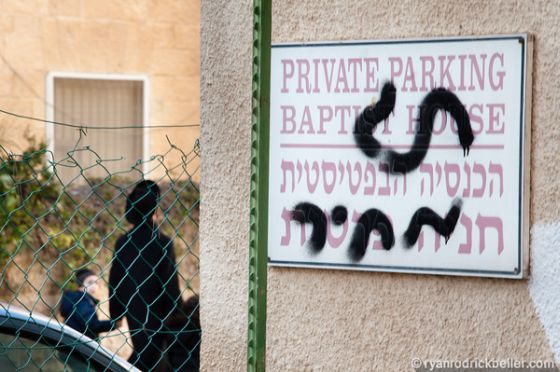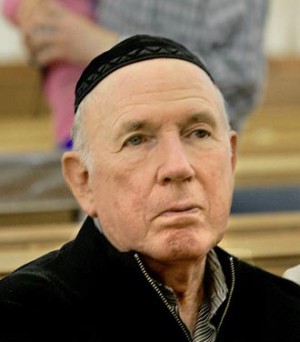Aside from its incompatibility with genuine democracy, one of the problems with the idea of a Jewish state is that it invests too heavily in the choice of its citizens.
As much as virtually every state is able to drum up a certain amount of nationalistic fervor among its citizenry, the foundation of loyalty behind the facade of flag waving is that for the vast majority of people they have no choice about the country they profess to love: it’s the one they were born in and have no real option to leave. The few paths of migration that do exist are defined by oppression, war, and poverty.
The chosen people are unique in this particular choice. But if becoming an Israeli can for any Jew be a choice, its chosenness — even for those born there — also makes it easier to contemplate the possibility of other choices.
Yuval Ben-Ami writes about the option of leaving Israel.
It was 2:00 AM when we arrived at St. Pancras station. 2:00 AM London time is 4:00 AM Tel Aviv time, and we were certainly still on Tel Aviv time. In a way, we were still in Tel Aviv altogether, or perhaps somewhere in between the two – in the cold sky over Bulgaria or Slovakia. The soul is said to be chasing the body when it is taken away by a jet plane. It only catches up with it several days later.
We stepped into a cab and were surprised by how roomy it was, as well as by the fact that it was driven by a lady, an uncommon sight around our own neighborhood. The air outside the cab was chilly and smelled of large trees and fried food, inside was a unique, inimitable, London cab smell. We were in an environment entirely foreign to us yet felt instantly very much at home. For an Ashkenazi Israeli, Europe will always be a home of sorts. The soul of our nation apparently hasn’t yet caught up with Zionism. It is still on its way from the grassy knolls of our grandparents’ homelands, baffled to behold us flying the other direction in Easy Jet planes.
Our longing for Europe’s mix of the familiar and the exotic grows, the more hopeless Israel’s situation becomes. The rise of fascism, the growing disregard for human rights, the gradual disappearance of our freedom of speech, all of these cause concerned young Israelis, whether Ashkenazi or otherwise, to reconsider their future on the soil of the Holy Land and look west.
Israel is losing its educated, concerned young generation to other countries, ironically: mostly to Germany. The new emigrants (let’s call them “newgoers”) are different from emigrants of decades past, termed “Descenders” in Zionist lingo, which views Israel as elevated above the rest of the world. While the descenders of the ’70s and ’80s were motivated for the most part by economic factors, the newgoers are often driven by a dread of Israeli politics and a sense that they no longer belong in Israel. It is a sense that our government gladly reinforces, mainly via supporting legislation that delegitimizes dissent.
By deliberately alienating this public, Netanyahu’s government is causing what I term a “heart-drain.” Israelis who hold a point of view that isn’t entirely tribal, who empathize with those living under the occupation or others wronged by state-sanctioned prejudice and intolerance, Israelis who take an interest in opening difficult historical questions for discussion, are encouraged to leave. If I had a penny for every time I was told to “just pack up and go,” I could buy my own flat in Pimlico.
The cab brought us the the home of the first exile, a friend who is completing his MA in London. His program is to conclude at the end of the year, but he told us he intends to stay out of Israel for another half a dozen years at least. Currently he is staying in a stately college campus in central London. The campus is made up of a single structure which encloses a serene courtyard. Its grand dining room is vaulted by a high, arched ceiling, beneath which a full English breakfast is served to students for the price of an Israeli popsicle. Its bulletin boards advertise an upcoming production of Macbeth, Its windows overlook a stately park, complete with enormous oaks and well tended paths. All in all the place looks like Epcot Center’s Hogwarts pavilion, and I mean that in a good way.
How, I thought, could I console myself for not living this guy’s life? Not only does he reside in such a graceful, calm environment, but he remains an activist by writing, informing, educating and organizing. It is likely that from from his London location, this man is making more of a difference than I do back home, while building a future for himself, somewhere that has an actual future. [Continue reading…]


